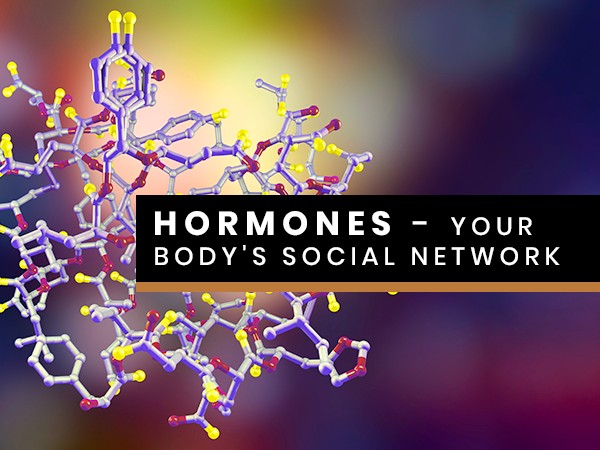Just In
- 3 hrs ago

- 4 hrs ago

- 7 hrs ago

- 7 hrs ago

Don't Miss
- News
 Who Will Win Thiruvananthapuram Lok Sabha Seat? Here Is Prakash Raj's Prediction
Who Will Win Thiruvananthapuram Lok Sabha Seat? Here Is Prakash Raj's Prediction - Movies
 Cannes: Aishwarya Rai To Deepika Padukone; 5 Times When Indian Actress Donned Sarees At Film Festival
Cannes: Aishwarya Rai To Deepika Padukone; 5 Times When Indian Actress Donned Sarees At Film Festival - Education
 WB Madhyamik Result 2024, WBBSE 10th Marksheet on wbresults.nic.in
WB Madhyamik Result 2024, WBBSE 10th Marksheet on wbresults.nic.in - Finance
 Sakuma Exports Secures Rs. 150 Cr Deal; Okays Rights Issue Amidst Positive Outlook
Sakuma Exports Secures Rs. 150 Cr Deal; Okays Rights Issue Amidst Positive Outlook - Technology
 Google Podcasts to Shut Down Globally in June 2024: Here's How to Transfer Your Podcasts to YouTube Music
Google Podcasts to Shut Down Globally in June 2024: Here's How to Transfer Your Podcasts to YouTube Music - Sports
 Legends Cricket League: Manager charged with Match Fixing Allegations after International Stars launch complaint
Legends Cricket League: Manager charged with Match Fixing Allegations after International Stars launch complaint - Automobiles
 Log9 Unveils Amphion & Nexmile – Revolutionizing EV Asset Management
Log9 Unveils Amphion & Nexmile – Revolutionizing EV Asset Management - Travel
Kurnool's Hidden Gems: A Guide To Exploring India's Lesser-Known Treasures
Know From A Nutritionist About Hormones: Your Body’s Social Network
Hormones dictate us (and our body) every single moment. Whether we are upset or happy, whether it's being stressed about the little things or being calm through the tough times - hormones are one aspect of our health that we often ignore and have very little idea about.
Hormones are the medium of communication between different tissues and glands in our body [1]. They are substances produced by your endocrine glands that have a tremendous effect on bodily processes and affects growth and development, mood, sexual function, reproduction, and metabolism. These are like a networking team in our body that exchanges information and decides when what processes need to take place.

Hormones work to ensure that we consume the right amount of food we need to fuel our bodies each day. They are responsible for signalling to the brain when it's time to start eating and also when to stop eating. When these signals don't function properly, this can promote obesity. Similarly, we have the mood hormone, the stress hormone, sleep hormone, hormones that decide the functioning of the thyroid gland, the reproductive systems and so on.
When there is a hormonal imbalance, a wide range of bodily processes start getting affected [2].
- We tend to have a slow metabolism
- Sleep cycles get affected
- Mood swings become more common
- Reproductive systems become compromised
- Thyroid gland dysfunctions
- Weight issues
It becomes our responsibility to look at the signs our bodies give us and recognise that something is not right.
The first signs of a hormonal imbalance could be [3][4]:
- Unexplained weight gain or weight loss
- Disrupted sleep cycles
- Irregular menstrual cycles
- Excessive hair loss
- Mood swings and irritable quickly / depression
- Frequent urination and suddenly increased hunger
- Trouble losing weight
How Does Food Affect Our Hormones? Types Of Food To Avoid And Dietary Tips

A 2-way Approach To Managing Hormonal Imbalances
Controlling hormonal imbalances is not about certain super-foods. It needs to be looked at holistically.
- Proper diagnosis and medication: The first step to treating hormonal imbalance is to get yourself evaluated from a qualified doctor through blood tests and scans. You will need to get on some medication to get the hormones within the range [5]. This will ensure that your body is communicating appropriately [6].
- Correcting lifestyle: This is a 4-step approach which is elaborated below. This includes management of diet, exercise, sleep and stress [7]. When the lifestyle factors are managed well, you will be able to reduce or get off your medication as well.

The 4 Pillars Of Lifestyle Management
1. Diet
No particular food has been proven to treat hormonal imbalances. It's a combination of a balanced meal plan that is rich in proteins, good fats and complex carbohydrates [8].
- Good fats like almonds, walnuts, pistachios, pumpkin and sunflower seeds.
- Protein-rich foods at least twice a day [9].
- MCT oils like Ghee and coconut oil for cooking.
- Minimise packaged processed foods.
- Green tea containing ashwagandha helps manage hormones.
- Cardio workout for 45 minutes, three times a week [10].
- Bodyweight exercises, three times a week.
- One day of good rest [11].
- Minimise exposure to chemical-laden cosmetics [15].
- Reduce excessive usage of medicated creams aimed at skin issues.
- Limit sugary, refined and packaged foods
- Negligible use of non-stick pans. Replace them as soon as the coating comes off.
- Reduce the use of plastic containers. Never heat food or liquid in plastic.
- Minimise use of cleaning products that use chemicals and toxins such as bleach.
- Wash fruits and vegetables in hot water to remove pesticides and chemicals.
- Invest in your personal development and things that make you happy. This doesn't need to be anything significant. It could be as simple as baking a cake or tending to your garden.
2. Exercise
This is extremely important to manage hormones like insulin, manage weight and stress levels in control. A good exercise routine helps to induce sound sleep, as well.
3. Sleep
A good sleep regulates hunger and satiety hormones. The hormone Leptin controls our satiety levels when we eat food. Ghrelin is the hunger hormone. Reduced sleep increases Ghrelin and reduces leptin, thus making us feel hungrier [12]. Sleep duration is an essential regulator of body weight and metabolism. There is a strong association between short sleep cycles and increased Body mass index. The human growth hormone is also regulated during sleep [13]. It is essential to maintain 6-8 hours of undisturbed sleep to ensure that our hormones function correctly.
4. Stress
The stress hormone cortisol affects us in multiple ways leading to high blood pressure, weight gain specifically in the abdominal region, depression, mood swings, digestive issues such as IBS, increased thirst and frequent urination and irregular menses in women. Meditation, sleeping well, exercise and avoiding stressful situations helps to handle stress [14].
Here are some lifestyle measures that help our hormones function correctly:

On A Final Note...
Hormonal imbalances have in the last decade show an upward trend and the diet alone is not to blame. Hence, to control them, we need to look at a holistic approach. They can rule our lives and shape our destinies. Hormones are fundamental to making us who we are - Professor John Wass, clinical endocrinologist, Oxford.
-
 diet fitnessInternational Day of Yoga 2022: Safe And Effective Yoga Poses For Thyroid Problems
diet fitnessInternational Day of Yoga 2022: Safe And Effective Yoga Poses For Thyroid Problems -
 disorders cureWhat Is Serotonin Syndrome? Causes, Symptoms, Complications And Treatments
disorders cureWhat Is Serotonin Syndrome? Causes, Symptoms, Complications And Treatments -
 wellness17 Foods That May Help Increase Oxytocin Levels Naturally
wellness17 Foods That May Help Increase Oxytocin Levels Naturally -
 wellnessIs Hormone Therapy Safe For Women With Migraine?
wellnessIs Hormone Therapy Safe For Women With Migraine? -
 wellnessDoes Intermittent Fasting Boost Testosterone
wellnessDoes Intermittent Fasting Boost Testosterone -
 healthHormone Therapy May Increase Risk Of Hearing Loss In Menopausal Women
healthHormone Therapy May Increase Risk Of Hearing Loss In Menopausal Women -
 disorders cure7 Best Tips To Keep Your Hormones Under Control, Naturally!
disorders cure7 Best Tips To Keep Your Hormones Under Control, Naturally! -
 wellnessPostmenopausal Hormone Therapy May Increase Hearing Loss Risk
wellnessPostmenopausal Hormone Therapy May Increase Hearing Loss Risk -
 wellness10 Ways To Stay Healthy After 40
wellness10 Ways To Stay Healthy After 40 -
 wellnessWhat Is Adult Growth Hormone Deficiency?
wellnessWhat Is Adult Growth Hormone Deficiency? -
 wellnessWhat Causes Female Stress?
wellnessWhat Causes Female Stress? -
 nutritionTestosterone-Boosting Foods Men Must Consume For Stamina!
nutritionTestosterone-Boosting Foods Men Must Consume For Stamina!


 Click it and Unblock the Notifications
Click it and Unblock the Notifications



